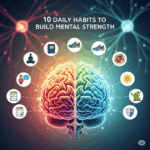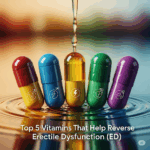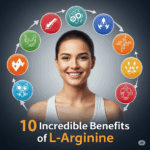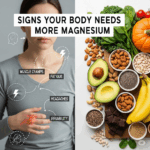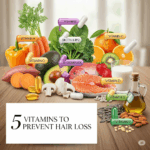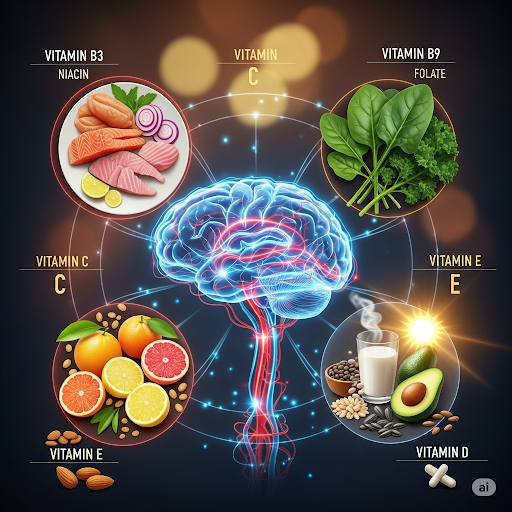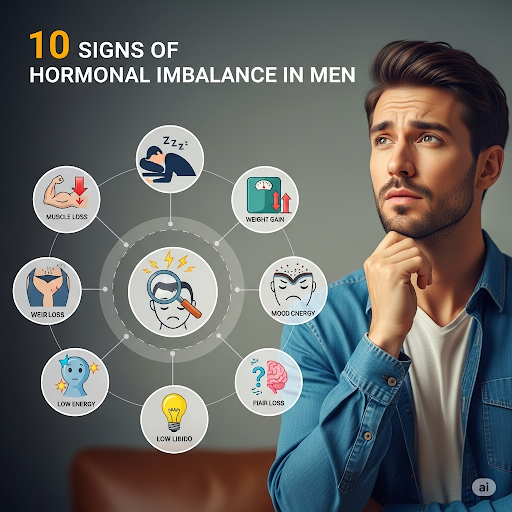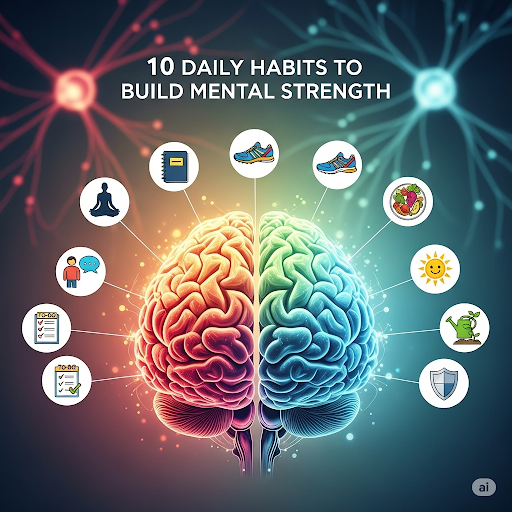Fuel your focus, protect your memory, and feed your brain right
Introduction: Why Blood Flow to the Brain Really Matters
Have you ever walked into a room and completely forgotten why you were there? Or stared at your screen, trying to remember what you were doing just five minutes ago? You’re not alone and while there are many causes behind these “brain fog” moments, one culprit is often overlooked: poor blood circulation to the brain.
Your brain is a hungry organ. Though it only makes up about 2% of your body weight, it consumes roughly 20% of your oxygen and energy. That’s a lot of fuel. And to get all that fuel, your brain needs a steady, healthy supply of blood, rich in oxygen and nutrients.
When blood flow is sluggish, the brain doesn’t perform at its best. You may feel mentally sluggish, forgetful, moody, or even dizzy. Over time, poor cerebral circulation can raise your risk for cognitive decline, strokes, and other neurological problems.
But here’s the good news: your diet can help. Specifically, certain vitamins can naturally support healthy blood circulation to the brain, keeping your mind sharp, focused, and well-nourished.
Let’s explore five of the best brain-boosting vitamins your circulatory system will thank you for.
Vitamin B3 (Niacin): The Brain’s Natural Vasodilator
If there were a superhero vitamin for blood flow, niacin would be wearing the cape. Also known as Vitamin B3, niacin plays a key role in vasodilation the relaxing and widening of blood vessels. This effect allows more oxygen-rich blood to reach vital organs, including the brain.
What makes niacin especially interesting is how it works as a natural supporter of cerebral circulation. It helps increase capillary density and supports the endothelial lining of blood vessels, which keeps them elastic and functioning smoothly. It also helps reduce cholesterol and inflammation two major contributors to clogged arteries and reduced brain perfusion.
In fact, some studies have shown that niacin therapy improves blood flow after strokes and may even support neurogenesis (the growth of new brain cells). Of course, it’s not a magic bullet, but for many people, niacin is an unsung hero for both cardiovascular and cognitive health.
You’ll find niacin in foods like turkey, chicken breast, tuna, peanuts, mushrooms, and brown rice. For therapeutic benefits, niacin supplements (particularly in the “nicotinic acid” form) may be used but they can cause a harmless skin flush, so always start slow and consult your healthcare provider.
Vitamin E: The Blood Flow Protector
If niacin opens the blood vessels, Vitamin E guards them. Known for its potent antioxidant powers, Vitamin E helps protect your blood vessels and brain from oxidative stress and inflammation, both of which are major enemies of healthy circulation.
But it goes deeper than that. Vitamin E prevents the oxidation of LDL cholesterol the kind that clogs arteries and supports the formation of healthy red blood cells. These red blood cells are the vehicles that carry oxygen to your brain, so keeping them healthy is a top priority.
More importantly, Vitamin E helps improve blood viscosity, which is a fancy way of saying it helps your blood flow more smoothly through vessels without clotting or getting “sticky.” This is essential for proper cerebral blood flow, especially in older adults or those with a history of cardiovascular issues.
You’ll find Vitamin E in foods like sunflower seeds, almonds, spinach, avocados, and olive oil. If you’re considering a supplement, go for the “mixed tocopherols” form rather than synthetic ones for better absorption and efficacy.
Vitamin C: The Collagen Builder and Vessel Supporter
Everyone knows Vitamin C as the immune system’s best friend, but did you know it also plays a major role in blood vessel health?
Here’s how: Vitamin C supports the production of collagen, a protein that keeps blood vessels strong and elastic. Weak or damaged vessels can’t deliver blood efficiently to the brain, and over time, they become more prone to rupture, inflammation, or narrowing.
Vitamin C is also a powerful antioxidant, meaning it protects the lining of your blood vessels (the endothelium) from oxidative damage caused by free radicals. That’s especially important in the brain, where inflammation and oxidative stress can lead to cognitive problems and memory decline.
Even better? Vitamin C enhances the absorption of iron an essential mineral needed for carrying oxygen in the blood. Low iron = low oxygen = tired brain. So keeping your Vitamin C levels up ensures your brain gets the oxygen it craves.
This vitamin is easy to find in citrus fruits, berries, kiwi, bell peppers, and leafy greens. A daily dose from food is usually enough, but if supplementing, look for liposomal or buffered forms for better absorption and stomach comfort.
Vitamin D: The Sunshine Vitamin That Supports the Brain
Think Vitamin D is just for bones? Think again. This “sunshine vitamin” is deeply involved in cerebrovascular function, brain cell communication, and yes blood flow to the brain.
Studies have shown that low Vitamin D levels are associated with an increased risk of cognitive impairment, dementia, and poor mood regulation. One reason? Vitamin D helps regulate the function of endothelial cells in your arteries and promotes anti-inflammatory mechanisms that keep blood vessels open and healthy.
It also boosts the production of nitric oxide a compound that helps widen blood vessels and enhance circulation. That’s a big deal when you consider how important nitric oxide is for blood flow to all parts of the body, especially the brain.
Most people are deficient in Vitamin D without even knowing it, especially if you work indoors or live in northern latitudes. You can get it from sunlight exposure (15–30 minutes a day), fatty fish like salmon or mackerel, egg yolks, and fortified foods. If supplementing, look for Vitamin D3 with K2 the combo helps keep calcium out of arteries and in your bones, where it belongs.
Vitamin K2: The Silent Guardian of Vascular Health
If Vitamin D is the spotlight stealer, Vitamin K2 is the quiet sidekick that makes it work properly especially when it comes to vascular health.
K2’s main job is directing calcium to the right places. Without enough K2, calcium can end up in arteries where it doesn’t belong, leading to stiff, narrowed blood vessels and reduced circulation including to the brain.
By preventing arterial calcification, Vitamin K2 helps maintain flexible, open blood vessels that deliver oxygen and nutrients efficiently. This not only benefits your heart but also keeps blood flowing freely to your brain cells.
K2 is often found in fermented foods like natto (fermented soybeans), sauerkraut, hard cheeses, egg yolks, and grass-fed meats. It’s hard to get enough from diet alone, so many people benefit from supplementing especially if they’re already taking Vitamin D.
Together, D3 and K2 form a dream team for improving blood flow, supporting brain health, and reducing the risk of cognitive decline as we age.
Final Thoughts: Feed Your Brain What It Deserves
Your brain is your control center, your memory bank, your emotional compass and it deserves to be treated like royalty. One of the simplest, yet most powerful ways to protect it is by optimizing blood flow. When your brain gets the oxygen and nutrients it needs, everything improves your mood, your focus, your energy, and even your creativity.
These five vitamins B3, E, C, D, and K2 aren’t just good for your brain; they’re essential. They nourish your blood vessels, boost circulation, fight inflammation, and help prevent the kind of slow, silent damage that creeps in over time.
So if you’ve been feeling foggy, forgetful, or just a little off your game, don’t reach for another cup of coffee. Start with your nutrients. Tune up your diet. Support your circulation. And remember: a well-fed brain is a brilliant brain.

